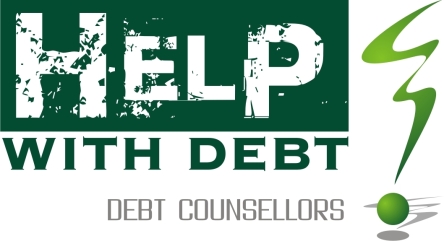Reckless lending
Nearly half of the 18.07 million consumers with credit in South Africa are struggling to meet their debt obligations, Gabriel Davel, the chief executive of the National Credit Regulator, says.
Davel says that, according to credit statistics to the end of December last year, 10.16 million credit accounts had been in arrears for more than three months.
Over-indebted consumers may be able to have a credit agreement set aside if it is found that they have been granted credit recklessly in terms of the National Credit Act. If you have been granted credit recklessly, it generally means you have been lent more than you can afford to repay.
Earlier this month, a Port Elizabeth magistrate’s court ruled that Absa was guilty of reckless lending (See below).
To prove reckless lending you must be able to prove that you were not able to afford the loan when you made the credit application. If a debt counsellor suspects a case of reckless lending, he or she will refer you to an attorney who can take the case to court. The attorney’s costs could be for your account.
However, reckless lending cases are rare and, as a consumer, you also have a responsibility to truthfully disclose your finances when making a credit application. If you lie to a creditor about your finances or expenses, your case may not be regarded as reckless lending.
At the same time, creditors are expected to review your financial history where possible and to check your finance application against that history.
The banking ombudsman, Clive Pillay, says his office receives about 50 complaints related to reckless lending each month, mainly against the four big banks – Absa, First National Bank, Standard Bank and Nedbank.
He says a number of the cases are related to loans taken out about two years ago, before the recession and retrenchments left many unable to meet their repayments.
Pillay says the overwhelming majority of the complaints are without substance – if you were able to afford the loan when it was granted and your circumstances have since changed (for example, you have been retrenched or interest rates have rocketed) then it is not considered reckless lending but simply over-indebtedness. (See “What to do if you are over-indebted”).
“In the odd one or two cases, we refer complaints to the National Credit Regulator for further investigation. Making a ruling on reckless lending is not within our jurisdiction,” he says.
Pillay says there was a ruling of reckless lending against a bank in April last year and this case sheds light on what checks and assessments credit providers need to do to ensure that they are not granting credit to you recklessly.
Loans set aside
In last year’s case, the Johannesburg magistrate’s court ruled that African Bank was guilty of reckless lending and set aside a consumer’s three loan agreements for a total amount of R14 000.
The consumer, an employee of Nampak, had five dependants – a wife and four children. His basic salary was R6 790, but his salary fluctuated depending on overtime worked and, for example, in August 2008 his salary was R9 638.
He had been granted loans from African Bank of R4 000 in July 2007, R11 000 in January 2008, R1 500 in April 2008 and R1 500 in May 2008.
He was also granted a loan of R21 500 by Capitec Bank in September 2007, but the ruling notes that this loan was obtained to pay off debts with African Bank and, in fact, it was the three loans granted by African Bank that amounted to reckless lending.
The NCA obliges creditors to fulfil certain criteria before lending you money, and the ruling points out where African Bank failed in its duty:
Credit providers have to adequately assess the information they are presented with. “A brief consideration of the applicant’s bank statement shows that he is every month left with a very small amount or nothing … it is reasonable to assume that if the loan consultants employed by African Bank conducted a credit bureau inquiry, they would also access African Bank’s own records to consider the applicant’s previous accounts and applications for loans. Voluminous documents attached … attest to this information being accessible and reasonably available to African Bank’s loan consultants”;
Credit providers should not simply go through the motions of conducting a financial assessment. “In conducting an assessment, [a] credit provider should not merely apply the principles and the purpose of the NCA in a mechanical fashion. A credit provider should actively engage with the consumer to do a proper assessment;
Discrepancies in the loan applications should have been glaringly obvious to the loan consultants. For example, the applicant’s expenses for food and groceries decreased between July 2007 and May 2008, although his dependants remained the same.
“Two of the children are in their early teens. The needs of children – especially teenagers – tend to increase as they become older and a decrease of the applicant’s expenses should have prompted African Bank to caution.”
The importance of consumers being able to understand their rights and obligations under a credit agreement. “The home language of the applicant is Zulu, as is clear from the fact that he requested the service of a Zulu interpreter in court. The contents of the agreements are, however, drafted in English. There are no indications that the (legally complex) contents was translated or even interpreted into Zulu to the applicant.”
The ruling goes on to say that “African Bank perhaps relied on the applicant’s propensity to easily accept loans and kept on enticing the applicant to take further loans”. According to the ruling, this is supported by the fact that the applicant stated that “African Bank call you all the time and give you money”.
The ruling says that this conduct by African Bank had an adverse effect on the applicant’s financial circumstances and “as this practice does not encourage responsible borrowing, the fair order would be to set aside all the applicant’s rights and obligations under all the agreements entered since January 30, 2008”.
Tami Sokuto, an executive director of African Bank, says the bank believed the judgment was wrong but decided not to appeal or take the matter further as this would be unfair to the consumer.
Absa found guilty of reckless lending
A magistrate’s court ruling on reckless lending earlier this month resulted in a Port Elizabeth pensioner having his mortgage bond with Absa set aside.
According to a Bloomberg report, about 20 months ago Absa agreed to lend the 81-year-old pensioner R350 000 so he could help his daughter’s business. He applied for the loan against his unbonded property, which was worth R1.5 million.
Louis von Zeuner, the deputy chief executive of Absa, told Bloomberg that the daughter stood surety for and was a guarantor of the loan.
However, attorney Pierre Kitching, who represented the pensioner in the magistrate’s court, says there appears to have been no assessment relating to his daughter’s finances, and there is no mention of her income being included in the assessment criteria on the loan application.
The loan repayments were R4 200 a month. The pensioner’s monthly income was R3 700 and his household expenditure was R2 472 a month.
When he defaulted on his repayments, the bank threatened to repossess the property, at which point he sought assistance from debt counsellors Debt Smart.
Barry Pinnock, the debt counsellor who referred the case to Kitching, says the pensioner had applications for similar loan amounts turned down by Standard Bank and First National Bank.
Happy Ntshingila, the chief marketing and communications executive of Absa, told Personal Finance that, after it has studied the judgment, Absa might contest the ruling, because the bank adheres to the lending criteria set out in the National Credit Act.
What to do if you are over-indebted
If you feel your debt is unbearable, you should contact a debt counsellor who can then assess your finances to determine whether or not you are over-indebted. If you are, the counsellor will notify all your creditors that you are undergoing debt counselling and will draw up a repayment plan for you. If you and your creditors agree to the repayment plan, your debt counsellor will present the plan to the National Consumer Tribunal for approval. If any creditors disagree with the plan, the counsellor must ask a magistrate’s court to rule on whether or not it is acceptable.
You can find a debt counsellor in your area on the National Credit Regulator’s website: http://www.ncr.org.za (Click on “Debt Counselling” on the left of the screen, then click on “Search for debt counsellors”).
How is reckless lending defined?
According to the National Credit Act, a credit agreement is reckless if, at the time that the agreement is made, the credit provider either:
Failed to conduct a financial assessment, regardless of the outcome that such an assessment might have had at the time; or
Having conducted a financial assessment, entered into a credit agreement despite information showing that the consumer did not generally understand or appreciate their risks, costs or obligations under the agreement or that entering into the agreement would make the consumer over-indebted.
You are considered to be over-indebted if your living expenses and your debt repayments together exceed your income. When credit providers assess your ability to repay a loan, they should be deducting your living expenses from your income first and then using the balance of your income to make an assessment.
Visit http://www.helpwithdebt.co.za for debt counselling and debt review





